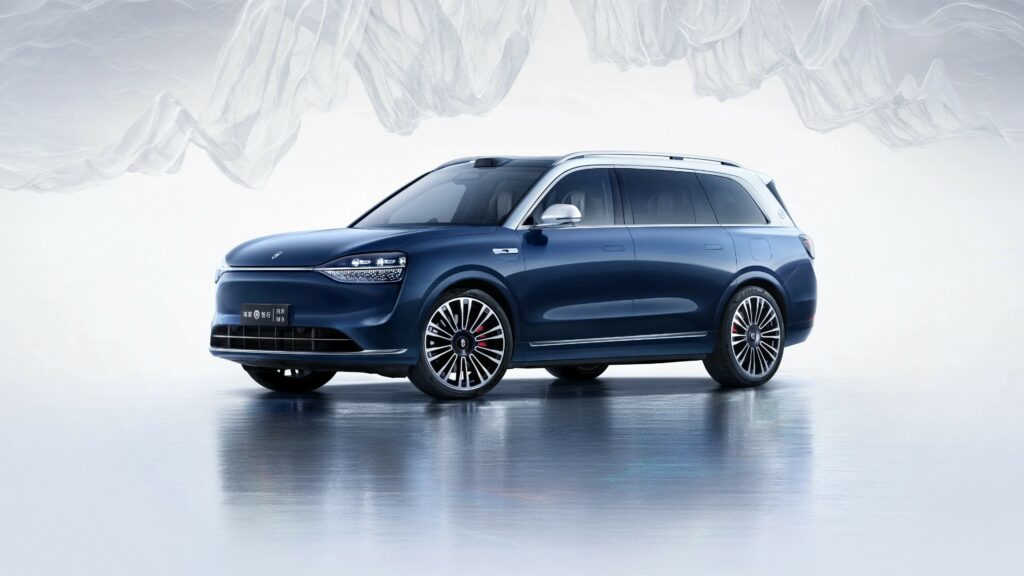Huawei and JAC Group’s collaboration under the former’s “Smart Selection” business model, aimed at developing high-end electric vehicles, has unveiled further details.
According to a report released by the Department of Ecology and Environment of Anhui Province, both companies are jointly developing a luxury new energy vehicle platform called the X6. The report indicates that the X6 platform will feature vehicle models ranging from B to D+ segments, enabling the development of a diverse range of vehicles including sedans, SUVs, MPVs, crossovers, and sports cars on a common platform. The platform’s inaugural product is expected to be a pure electric mid- to large-sized MPV, measuring 5.2 meters in length and featuring a wheelbase of 3.2 meters. The annual production target is reportedly 35,000 units, according to 36Kr.
JAC is one of Huawei’s Smart Selection automaking partners, and the brand for their joint venture is speculated to be named “Aojie,” with the English name yet to be announced. Apart from JAC, Huawei has embarked on similar partnerships with companies like Seres, Chery, and BAIC Group. Huawei is jointly developing the Aito brand in collaboration with Seres and concurrently cooperates with Chery under the Luxeed brand.

The document also mentions the reasons for JAC’s collaboration with Huawei. As JAC’s medium- to large-sized vehicles are predominantly hybrid EV models, they seemingly lack competitiveness and are not well-equipped to meet future development needs. Therefore, JAC is developing two pure-electric platforms: an internally developed DE platform and the X6 platform it is jointly developing with Huawei.
However, the MPV market is already beginning to gather traction, drawing competition. As MPVs gain popularity among more users due to their comfort and spaciousness, automakers like BYD, Xpeng Motors, GAC, and Li Auto have already introduced new energy MPV models. Moreover, Dongfeng Motor, Geely, and other automotive manufacturers also have plans to launch related products this year.
Currently, JAC’s factory for MPV production has yet to be completed and will take around a year after construction to commence production. By then, more players might have entered the MPV market, further increasing the market pressure.

More importantly, JAC’s leap into the high-end market is unlikely to be an overnight success. JAC is seemingly aware of the challenges involved, having forecasted a relatively low annual production volume for its first MPV model, at only 35,000 units, which equates to an average monthly output of around 2,917 units.
For comparison, the bestseller of domestic MPV models in 2023 was BYD’s Tengshi D9, with 119,200 units sold. By the end of February 2024, Xpeng also found success with its X9 model, achieving weekly sales of 1,202 units.
Adding more variety to its Smart Selection series is likely to bolster Huawei’s appeal, both in terms of brand image and technological prowess. However, replicating the success of the Aito M7 will be a significant challenge, especially amid escalating competition.
It is also worth noting that JAC has been a strategic partner to NIO and played an essential role in the history of the premium electric carmaker, manufactured nearly all Nio vehicles. However, JAC sold its two OEM factories back to Nio at the end of 2023 for reportedly CNY 4.5 billion, aiming for development of its own EV brands.
This feature article was written by Tian Zhe in chinese and originally published on 36Kr.com

